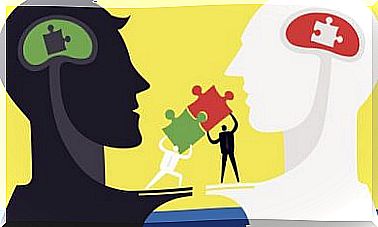Empathy, The Pleasure Of Emotional Reading For Our Brain

Empathy is our emotional brain’s ability to read or perceive the thoughts and feelings of others.
Developing it allows us to experience other people’s emotions as if they were our own, to understand their psyche and to secure the support or behavior that the other needs.
It is not easy to draw a map on which one’s own emotions and the emotions of others appear correctly, but the game is worth the effort.
If we are successful in this, we will have a tremendous benchmark that will positively influence the type of bond we make, the hands we are able to extend, and the joy we are able to experience from generosity.
Because being able to don someone else’s sadness costume, for example, is a wonderful quality that helps us travel the world with precious and intelligent emotional capacity.
Contrary to what one might think, if one knows that this quality is integrated into the general language, it is not easy to achieve it or to obtain it.
However, something is working in our favor: we are emotional beings who learn to think, not thinking machines who learn to feel, even if we have forgotten it. ..
True empathetic viewers can even hear what is being said silently. The most important thing in communication is to hear what you are not saying.
Peter F. Druncker

Emotional learning, the basis for developing empathy
Our first emotional contacts teach us what to see and what not to see in the world of feelings and emotions. Thus, our emotional learning is made up of the following stages:
- The first learning is based on what we need to do to be successful in perceiving the emotions of others.
That is, we must harmonize with the feelings and emotions of others to promote our understanding of their inner world. - The second learning is to understand that it is not at all costs to adopt the perspective of others but to see the world through other eyes, which helps us to understand why a person acts in a certain way.
- Understanding contains in itself an emotional response to the person who is trying to understand the reasons that lead to certain feelings.
- In addition to this, we must understand that we must not only perceive and understand what the other is feeling but that we must also show them that they are understood, so that the benefits of empathy can reach them correctly. .
That is to say, it is a question of coordinating actions at the cognitive, behavioral and sentimental level.
In addition, it is important to differentiate between empathy and sympathy, because in the second case, we succeed in perceiving the feelings of others, but we fail to understand them.
Empathy involves understanding and experiencing other people’s emotional states as if they were our own.
Sensitivity to pick up non-verbal messages is something that needs to be practiced the same way we practice mathematical equations or parsing.

Empathy, emotional reading in our brain
With the right dispositions, we can reach the emotional climate which allows us to find this harmony and to decipher the desires, the aspirations, the deeply buried messages, the needs etc.
All this wonderful process that sometimes seems almost magical takes place in our brain, which skillfully performs an intense emotional reading.
Now we have to ask ourselves the following question: how to do it?
Fortunately for us, science gives us answers and allows us to locate the areas where our emotional capacity resides.
Let’s take a look at some of these findings:
- One of the most important discoveries in neuroscience was that of mirror neurons, which are found in our emotional circuits.
These are brain cells whose mission is to reflect in our brain what we observe (we all know the effect on us when seeing someone else yawn). - The limbic system is the basis of our emotional brain. This brain area is functional from birth, and even in the mother’s womb. It encompasses the temporal lobe, the tonsils, the hippocampus and the orbi-frontal area.
The latter functions as a rehearsal station because it perceives and transmits information to the rest of the body on the animate state of oneself and of others.
- The frontal lobe is our executive brain. It is part of us and is responsible for modulating and managing the emotions of the limbic system so that we can insert them into the environment around us. That is to say, it allows us to be functional beings in society, and gives us the capacity to act correctly, in accordance with social norms.
- The cerebral hemispheres. In general, we can say that our left hemisphere controls our ability to think about emotions while the right hemisphere rather manages the limbic system.
Although at the individual level the differences in the brain can be very large, it has been found that in men executive brain activity over emotions predominates while in women the limbic system is most important.
This corroborates the idea that the female world tends to be more emotional, which makes women have a better empathic capacity.
Either way, empathy can be developed in both men and women alike.
It is therefore important to literate our emotional brains and strive to view the world from other people’s eyes. The trip is wonderful …









